
Learn English Today
Free materials and resources for learners of English.
- Grammar list
- Exercise list
- Vocabulary Contents
- Idioms: by theme
- Idioms: alphabetical lists
- Today's idiom
- Ph Verb Lists + Exercises
- Business letters
- Presentations
- Interview questions
- All business content
- Stress-noun-verb
- Silent letters
- Online word games
- Printable word games
- Resources for learners
- Resources for teachers
- New words in English
- Environment
- Fun activities
- Sitemap: list of contents

See TODAY'S IDIOM
English Grammar

TRAVEL - TRIP - JOURNEY - TOUR - VOYAGE
Meaning and use of the words 'trip', 'travel', 'journey', 'tour', and 'voyage'..
The explanation below should help clarify the meaning and use of vocabulary related to travel.
Try an exercise
back to grammar
Copyright www.learn-english-today.com - All Rights Reserved.
The materials on this website may be copied for use in the classroom or for private study. Any other use without permission is forbidden.
Privacy Policy Cookie Policy
Learn English by yourself!
Difference between “Travel”, “Trip”, “Journey”, “Tour”, “Voyage”

Travel, trip, journey, tour, voyage: meaning and use
When talking about traveling in English, we often come across words like “travel”, “trip”, “journey”, “voyage”, and “tour”. Although they all relate to traveling, the question often arises: what is the difference between them?
Travel is a general term that describes the process of moving from one place to another, usually over a significant distance. It can refer to any journey, regardless of its duration or purpose. For example:
- “I love to travel and explore new cultures.”
Trip refers to a specific journey with a particular purpose, which usually includes returning to the starting point. This word is often used when referring to short journeys or vacations. For example:
- “We went on a trip to the mountains for the weekend.”
Journey is a word that can describe a physical journey from one place to another, but it can also have a deeper meaning, describing a personal or spiritual process of growth or change. For example:
- “Her journey to becoming a doctor was challenging but rewarding.”
Voyage refers to a long journey, usually by sea or into space. For example:
- “Before the 20th century, long sea voyages were common.”
Tour is a journey during which several places are visited, especially during a vacation.
- “We went on a tour of Italy.”
Let’s examine each word in more detail, including its grammar, meaning, and examples of usage.
Travel – Meaning and usage
“ Travel ” is the most general term used to refer to the act of moving from one place to another. You can “travel” to faraway countries as well as nearby regions.
- As a verb, “travel” means “to go from one place to another, usually over a considerable distance”. It can be used for physical journeys as well as for the movement of objects or information.
- As a noun, “travel” is used to describe the activity of traveling or specific journeys.
- “Travel” can be both a regular verb and an uncountable noun.
- In verb form, “travel” is conjugated with different tenses and persons, e.g., “travels”, “travelled”, “travelling” (British English), or “traveling” (American English).
- As a noun, “travel” is usually used in the singular form without an article, e.g., “Travel is an important part of my life”.
- Verb : “I love to travel around the world.”
- Noun : “His travel experiences were documented in a blog.”
- “She travels to work by train every day.”
- “During his summer vacation, he went on a travel adventure across Europe.”
- “The news about the discovery travelled fast across the internet.”
Trip – Meaning and usage
“ Trip ” usually refers to a short journey there and back, with a specific purpose. For example, you can take “a trip” to another city or the mountains for the weekend.
- As a noun , “trip” means a journey to a place where you stay for a short time and then return. It can be a journey for the purpose of leisure, work, study, etc.
- As a verb , “trip” can mean to stumble or make a mistake, but in the context of traveling, it is used less often and may mean to travel with light, quick steps.
- As a noun , “trip” is countable, so it can have a plural form “trips”.
- As a verb , “trip” is conjugated in different tenses: “trips”, “tripped”, “tripping”.
- Noun : “We went on a trip to Paris last summer.”
- Verb : “Be careful not to trip over the rug.”
- “The business trip to Tokyo was very productive.”
- “Our school organized a trip to the museum.”
- “He tripped and fell while hiking in the mountains.”
- “She tripped over her shoelaces and dropped her groceries.”
“Trip” can also be used metaphorically, as in the expressions “guilt trip” (a feeling of guilt induced by another person) or “power trip” (an excessive or unjustified desire for power).
Journey – Meaning and usage
“ Journey ” can mean a long voyage, often with challenges or adventures. “Life’s journey” is an idiomatic expression referring to one’s path in life.
- As a noun , “journey” refers to the act of traveling from one place to another, especially when done by vehicle. It can be a physical journey, such as traveling a distance, or a metaphorical meaning, such as a journey through life or a personal experience.
- As a verb (although this usage is quite literary), “journey” means to travel.
- As a noun , “journey” is countable, so it can have a plural form “journeys”.
- As a verb , “journey” is conjugated in different tenses: “journeys”, “journeyed”, “journeying”.
- Noun : “The journey from London to Edinburgh takes about four hours by train.”
- Verb : “They journeyed across the desert for days.”
- “Her journey to recovery after the accident was inspiring.”
- “We embarked on a long journey through the mountains.”
- “As we journeyed further north, the weather became colder.”
“Journey” can also be used metaphorically to describe a long process of change or growth, such as “a journey of self-discovery” or “a spiritual journey”.
Tour – Meaning and usage
“ Tour ” refers to an organized excursion or route led by a guide. For example, travel companies offer “tours” to popular attractions.
- As a noun , “tour” means a visit to a place or area, especially for the purpose of sightseeing and learning about it. It can also be a trip for pleasure, especially as a vacation, visiting several different places in an area.
- As a verb , “tour” means to travel somewhere, e.g., to spend a month touring (around/in) Kenya.
- As a noun , “tour” is countable, so it can have a plural form “tours”.
- As a verb , “tour” is conjugated in different tenses: “tours”, “toured”, “touring”.
- Noun : “We went on a tour of the museum.”
- Verb : “The band is currently touring to promote their new album.”
- “They took a guided tour of the historic city.”
- “Our company organizes tours to various countries.”
- “Next year, the theater group will tour in Asia.”
- “She has been touring as a solo artist for two years.”
“Tour” can also be used metaphorically, such as “a tour of duty,” meaning a period of service, especially in the military.
Voyage – Meaning and usage
“ Voyage ” mainly refers to sea or space journeys. This word conveys a sense of adventure and exploration of new territories. The term is often used to describe long-distance travels.
- As a noun , “voyage” refers to a long journey, especially by sea. It can be used to describe long sailing journeys on ships or travels across oceans.
- As a verb (although this usage is quite literary), “voyage” means to travel, usually over great distances.
- As a noun , “voyage” is countable, so it can have a plural form “voyages”.
- As a verb , “voyage” is conjugated in different tenses: “voyages”, “voyaged”, “voyaging”.
- Noun : “The voyage across the Atlantic took two weeks.”
- Verb : “They voyaged through the Mediterranean on their yacht.”
- “Christopher Columbus’s voyage to America was a pivotal event in history.”
- “The astronauts’ voyage to the moon captured the world’s imagination.”
- “During the 18th century, many explorers voyaged to the Pacific Islands.”
- “She always dreamed of going on a voyage around the world.”
“Voyage” can also be used metaphorically, for example, “a voyage of discovery” means the process of learning or exploring the unknown.
Knowing these distinctions will allow you to choose the right word to describe your experience and impressions. This will not only improve your understanding of the English language but also help avoid misunderstandings when communicating with others.
Leave a Reply
Your email address will not be published. Required fields are marked *
Perfectyourenglish.com
English Grammar Lessons And Worksheets
Travel vs. Journey vs. Trip vs. Voyage
by Manjusha Nambiar · March 26, 2020
Travel, Journey, Trip and Voyage – Differences in meaning
Travel means traveling in general.
- Travel is my passion.
The plural form travels is used to refer to long journeys especially to other countries.
- Is he back from his travels?
A journey is a piece of traveling.
- Did you have a good journey?
A trip is a return journey. It also refers to the activity which is the reason for the journey.
- He is on a business trip .
A long sea journey is often called a voyage .
Related posts:
- Travel, Journey, Trip And Voyage
- Talking About Travel Plans
- Countable And Uncountable Nouns
- Infant vs. Toddler
- Almighty Dollar
- Wishing People | English Speaking Lessons
- In The Way And On The Way | Differences
- Few vs. Little
Tags: journey travel trip voyage
Manjusha Nambiar
Hi, I am Manjusha. This is my blog where I give English grammar lessons and worksheets.
- Next story Until And Till
- Previous story Too…To vs. So…That
Leave a Reply Cancel reply
Your email address will not be published. Required fields are marked *
Explore perfectyourenglish.com
Useful links
- English Grammar
Learn English with me
If you need one-on-one private tuition, please send an email to [email protected]
- A word a day
- B2 First (Cambridge English)
- Bank PO English
- CBSE Grammar Worksheets
- Class 10 worksheets
- Class 11 Worksheets
- Class 2 Worksheets
- Class 3 worksheets
- Class 4 worksheets
- Class 5 worksheets
- Class 6 worksheets
- Class 7 worksheets
- Class 8 worksheets
- Class 9 and 10 worksheets
- Class 9 worksheets
- Grammar exercises
- Karnataka Board English
- Kerala Syllabus English
- Maharashtra Syllabus English
- Phrasal verbs
- PSC Coaching
- Reading comprehension
- Sample Letters
- Tamil Nadu Board English
- Test Preparation
- Uncategorized
- Vocabulary exercises
Never Miss an Update!
Enter your email address to receive our lessons in your inbox:
Delivered by FeedBurner
Sites in our network
NCERT Guides
Learn Maths Online | Free NCERT Maths Solutions
Recent Posts
- Cars That Burn Fossil Fuels Should Be Banned
- Wealthy Nations Should Give Humanitarian Assistance to Poor Nations | IELTS Essay Sample
- People in all Modern Societies Use Drugs | IELTS Essay Sample
- The World Is Experiencing a Dramatic Increase in Population | IELTS Essay Sample
- We Are Becoming Increasingly Dependent on Computers | IELTS Essay Sample
English365plus.com
- Confused Words
Confused Words: Trip, Travel, Journey & Voyage
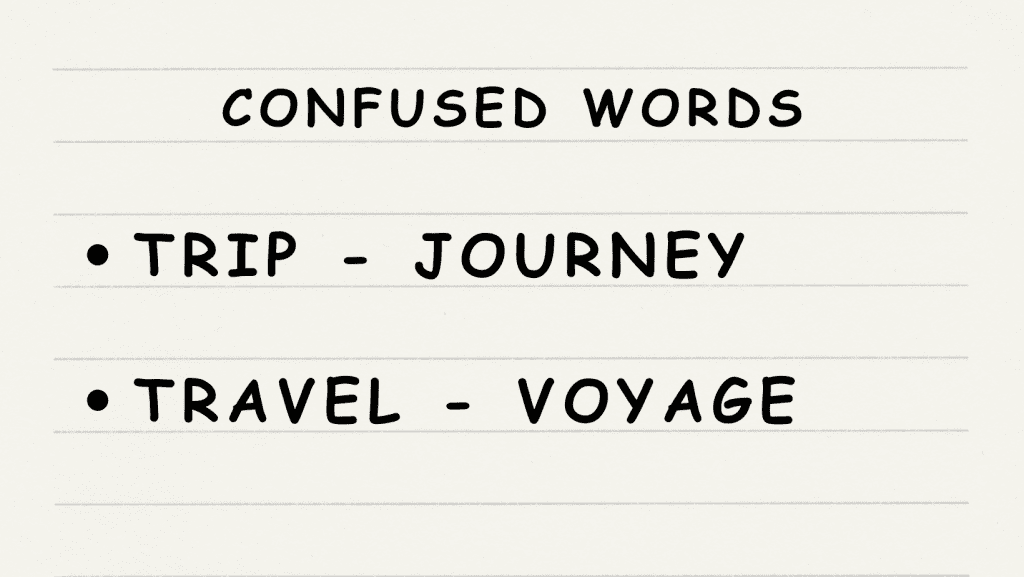
Hello, dear learners! Are you ready for another exciting English lesson? Today, we’re focusing on the words “Trip,” “Travel,” “Journey,” and “Voyage.” These words are all about going from one place to another, but they each have their unique contexts. Let’s learn together!
A “Trip” (IPA: /trɪp/) typically refers to a short journey, often for pleasure or a specific purpose.
Here are 10 examples:
- They are planning a trip to Europe this summer. (A holiday journey)
- I took a business trip to New York. (A journey for work)
- We had a school trip to the museum. (A journey for education)
- My daily trip to the gym keeps me fit. (A routine journey)
- The trip to the grocery store was quick. (A short journey)
- She enjoyed her trip to the beach. (A recreational journey)
- He’s going on a fishing trip this weekend. (A journey for a specific purpose)
- I forgot my wallet on my last trip to the cafe. (A recent journey)
- They’re excited about their upcoming camping trip . (A planned journey)
- The train trip was very scenic. (A journey involving travel)
To “Travel” (IPA: /ˈtrævəl/) generally means to go from one place to another, especially over a long distance. It’s also used to discuss the general activity of traveling.
- She loves to travel around the world. (Going to different places)
- I often travel for work. (Going places for business)
- They travel by car to reach their hometown. (Going somewhere using a particular mode of transport)
- He travels a lot due to his job. (Frequently going to different places)
- It took hours to travel from London to Manchester. (Going from one city to another)
- We like to travel to warm places in the winter. (Going to specific places)
- They plan to travel across Europe by train. (Going through multiple places)
- She travels back home every weekend. (Regularly going to a particular place)
- I usually travel light. (Going places with few belongings)
- The team traveled to Paris for the match. (Going to a place for a specific event)
A “Journey” (IPA: /ˈdʒɜːrni/) often refers to a long trip or process. It can be used for physical travel or metaphorically for personal growth or development.
- The journey from New York to California is long. (Long physical trip)
- She is on a journey of self-discovery. (Personal development)
- His journey to recovery after surgery was inspiring. (Healing process)
- The journey through the mountain was challenging. (Difficult trip)
- We began our journey at dawn. (Start of a trip)
- His journey to success wasn’t easy. (Process of achieving success)
- The book describes a journey across Antarctica. (Long trip in a book)
- The train journey was comfortable and scenic. (Trip by train)
- She described her journey into the world of art. (Process of becoming involved in art)
- It’s not about the destination, it’s about the journey . (Process over result)
A “Voyage” (IPA: /ˈvɔɪɪdʒ/) is typically a long journey made by sea or in space.
- The Titanic’s maiden voyage ended in disaster. (First journey by ship)
- The astronauts are preparing for their voyage to Mars. (Journey to space)
- The voyage across the Atlantic took several weeks. (Long sea journey)
- His voyage around the world by sailboat was impressive. (Global trip by sea)
- The book recounts a perilous voyage across the ocean. (Dangerous sea journey)
- The explorers set off on a voyage of discovery. (Sea journey for exploration)
- The space agency is planning a voyage to the moon. (Space trip)
- They enjoyed a voyage on a luxury cruise ship. (Pleasurable sea trip)
- The voyage was made difficult by stormy weather. (Challenging sea journey)
- The seafarers completed their voyage and returned home. (Completion of a sea trip)
In conclusion, we take a “Trip” for short journeys, we “Travel” as a general activity, a “Journey” often refers to a long trip or personal growth process, and a “Voyage” is a long journey by sea or in space. Keep practicing these words in context, and you’ll be a master in no time!
Share this post
You may also like....

Confused Words: Child, Baby, Infant, Toddler & Kid

Confused Words: Home vs. House

Confused Words: I Hope vs. I Wish
Confused Words: Alone vs. Lonely
Phrase Explanation: Get Real
3 Phrasal Verbs with CLEAN
25 Phrasal Verbs with LOOK
5 Phrasal Verbs with SIT
Phrase Explanation: Cat Got Your Tongue
31 Collocations Related to The Environment

Understanding the Distinction: Travel, Trip, and Journey Explained
Zackary Hooper

Ever find yourself scratching your head over when to use ‘travel’, ‘trip’, or ‘journey’? Me too. In fact, these terms are commonly misused by even the most well-traveled folks among us.
Table of Contents
As an English language aficionado and travel enthusiast, I dove deep into linguistic resources to clear up this confusion once and for all. This blog will guide you through the nuances of these three words , helping you navigate your way to flawless English usage in any travel context .
Ready for departure?
Key Takeaways
- Travel refers to going to a place, especially far away.
- Trip involves traveling from one place to another, usually for a short period of time.
- Journey implies traveling from one place to another without necessarily returning.
- Proper usage of these terms is essential in effectively conveying our experiences.
Definition and Differences between Travel, Trip, and Journey
Travel is a verb that means going to a place, especially far away, while trip refers to the process of traveling from one place to another, usually for a short time. Journey, on the other hand, implies traveling from one place to another without necessarily returning.
Travel as a verb meaning to go to a place, especially far away
Travel, as a verb, emphasizes the act of moving from one location to another. This movement often involves significant distance between the two points. For instance, you might say you are traveling to Europe or Asia from America – places that are undoubtedly quite far from each other.
Notably, travel doesn’t always require a return trip; it merely notes the action of going somewhere far . Even voyages into space can be considered travel! So next time you utter “I love to travel,” note that this phrase speaks volumes about your passion for exploring distant destinations and embracing new experiences on a broader geographic scale .
Trip as the process of traveling from one place to another, usually for a short time
When we talk about a trip, we’re referring to the act of traveling from one place to another. It’s usually for a short period of time and involves moving between different locations .
Think of it as going on a vacation or taking a quick getaway. A trip can be as short as a day or extend over several days, but it generally doesn’t involve staying in one place for an extended period.
So whether you’re heading out on a road trip with friends or catching a flight to explore new cities, remember that a trip is all about the process of getting from point A to point B , enjoying the journey along the way.
Journey as traveling from one place to another, not necessarily returning
A journey is all about the experience of traveling from one place to another, without the expectation of returning . It can be a long and exciting adventure, with multiple destinations along the way.
Unlike a trip or travel, which often involves going somewhere and then coming back, a journey implies forward movement and exploration . It’s like embarking on a voyage of discovery, where you’re eager to see what lies ahead and open to new experiences.
Whether it’s backpacking through Europe or sailing around the world, a journey offers endless possibilities for exploration and self-discovery .
Common Uses and Examples of Travel, Trip, and Journey
– Travel: “I love traveling to different countries , experiencing new cultures and exploring exotic destinations.
– Trip: “We took a weekend trip to the beach, enjoying sun-kissed days and relaxing by the seaside.”
– Journey: “His journey across the desert was filled with challenges and self-discovery as he embarked on a soul-searching adventure.”
Travel: “I love to travel to different countries.”
I absolutely adore exploring different countries . Experiencing new cultures, trying unique cuisines , and immersing myself in unfamiliar landscapes is what makes travel so thrilling for me.
Whether it’s wandering through ancient ruins in Greece or hiking through the vibrant jungles of Costa Rica, I find immense joy in venturing beyond my comfort zone and discovering all that the world has to offer.
Travel opens my eyes to different perspectives and allows me to create lasting memories that I cherish forever.
Trip: “We went on a business trip to New York.”
Last week, I had the opportunity to go on a business trip to New York . It was an exciting experience that allowed me to explore the bustling city and meet with important clients . During the trip, we visited various companies , attended conferences , and even had some time to enjoy the sights and sounds of New York.
Being able to immerse myself in a different environment for a short period of time was both refreshing and educational. Overall, it was a successful trip that helped us strengthen our professional relationships and achieve our business goals.
Journey: “His journey around the world took him three years.”
I embarked on a three-year journey around the world, exploring new cultures and experiencing incredible adventures along the way. From bustling cities to remote villages, my journey allowed me to immerse myself in different landscapes and meet fascinating people from all walks of life.
It was a transformative experience that broadened my horizons and shaped my perspective on the world.
Clarifying Misuses of Travel, Trip, and Journey
Many people mistakenly use the term “travel” for short distances, but it should be reserved for going to faraway places. To understand the proper usage of these words, read on!
Incorrect uses of travel: “He traveled to the grocery store.”
Using the word “travel” to describe a short trip to the grocery store is incorrect. Travel usually refers to going to a distant place, especially far away. So, it’s important to use this term appropriately and not for everyday local trips like grocery stores.
Proper uses of the terms: “I traveled to Europe.”
I traveled to Europe for my summer vacation. It was an exciting travel experience filled with new cultures, delicious food, and breathtaking sights. The proper use of the term “travel” in this context refers to going somewhere far away , especially to a different country or continent .
In this case, I embarked on an adventure from my home country to Europe, immersing myself in each destination’s rich history and vibrant atmosphere. Traveling to Europe broadened my horizons and created memories that will last a lifetime.

Understanding the Nuances between Travel, Trip, and Journey
Travel, trip, and journey may seem similar, but they each have their own nuances. Read on to delve deeper into the distinctions between these terms and how to use them correctly in your everyday conversations.
Travel focuses on the action of going to a distant place.
Travel allows us to embark on exciting journeys to faraway destinations. It is the act of physically moving from one place to another , often to distant locations . Whether it’s exploring a new country , immersing ourselves in different cultures , or experiencing thrilling adventures , travel is all about the exhilarating action of venturing beyond our comfort zones .
So pack your bags and get ready for an incredible journey filled with unforgettable experiences!
Trip emphasizes the process of traveling and staying in a place.
A trip is all about the journey itself and the experience of being in a specific place . It focuses on the process of traveling from one location to another, while also emphasizing the time spent staying in that particular place.
Whether you’re taking a short weekend trip to a nearby city or embarking on a week-long vacation, a trip is about immersing yourself in new surroundings and enjoying everything that destination has to offer.
Journey implies a longer and more significant travel experience.
When embarking on a journey, you can expect a more extensive and meaningful travel experience . Unlike a simple trip or travel, a journey often involves exploring multiple destinations or pursuing a specific purpose .
It encompasses the idea of venturing into the unknown and embracing new challenges along the way. Whether it’s an epic road trip across several countries or a spiritual pilgrimage to sacred sites, a journey offers an opportunity for personal growth and transformation .
It allows you to immerse yourself in different cultures , navigate unfamiliar terrain, and create lasting memories. So if you’re seeking an adventure that goes beyond mere transportation from point A to point B, set out on a journey that will take you further and leave an indelible mark on your soul.
Conclusion and Importance of Using the Correct Terms
Understanding the distinctions between travel , trip, and journey is crucial in accurately conveying our experiences . By using these terms correctly, we can communicate more effectively and avoid confusion .
So whether we’re embarking on a short trip or a life-changing journey , let’s remember to use the right words to describe our adventures ! Keep exploring and keep traveling!
1. What is the difference between travel, trip, and journey?
Travel refers to the act of going from one place to another, while a trip is a specific instance of traveling for a particular purpose or destination. A journey, on the other hand, implies a longer and more meaningful experience that may involve personal growth or transformation.
2. Can you give examples of each term – travel, trip, and journey?
Sure! Travel can include activities like flying to a different country or taking a road trip across states. A trip could be going on vacation to Disneyland or visiting family over the holidays. And a journey might involve backpacking through Europe for several months or embarking on a spiritual retreat.
3. Is there any overlap between these terms?
Yes, there can be some overlap between these terms depending on context. For example, someone’s “trip” may also be considered their “journey” if it involves self-discovery or exploration. Similarly, long-term travel experiences may encompass both the notions of “travel” and “journey.”
4. How does understanding the distinction between these terms help in communication?
Understanding the distinction between travel, trip, and journey helps in effective communication as it allows us to accurately describe our experiences and intentions when discussing our travels with others. It provides clarity and avoids confusion by using appropriate terminology when sharing stories or making plans involving different types of travel experiences.
About the author

I’ve been fortunate to visit over fifty countries, each journey leaving a unique footprint on my life’s map. From bustling cities to serene nature trails, I’ve immersed myself in different cultures and experiences, constantly broadening my understanding of the world. On this site, I share my travel stories, tips, and insights, hoping to inspire others to embark on their own journeys. Join me as we uncover the beauty of our planet, one adventure at a time. Please reach out here if you need to get in touch.
Leave a Reply Cancel reply
Your email address will not be published. Required fields are marked *
Save my name, email, and website in this browser for the next time I comment.
Latest posts

Practical Gift Ideas for Long-Term Travelers
Finding the right gift for a long-term traveler can be quite a challenge. Believe me, I’ve been there – whether it’s for a digital nomad friend or a student studying abroad, you want to offer something practical yet enjoyable. This is why I’ve compiled these 18+ thoughtful and handy travel-related items that they’re sure to…

Understanding the Meaning and Usage of ‘Are You Travelling’ in English
Have you ever been unsure about the context or appropriate response when someone asks, “Are you travelling”? You’re not alone. Many of us, including myself, have found ourselves puzzled by this seemingly straightforward question in English. This article is a product of tireless research and aims to demystify its meaning and usage. We’ll journey through…


The Countries with the Highest Travel Rates: Who Travels the Most?
Ever found yourself itching for an adventure, wondering which nations are on the move most often? I’ve been bitten by that same travel bug and always wondered who the globe-trotters really are. Diving deep into studies and statistics, I’ve uncovered fascinating facts about the countries with the highest travel rates – like how Finnish people…

Learn English Free
Common mistakes and confusing words in english.
🏆 Online language exam registration app
Are you looking for an official language exam?
- A2 / B1 / Learn English / Learn language
Differences between travel, trip, journey and voyage
by Elblogdeidiomas.es · Published 19/04/2022 · Updated 03/05/2022
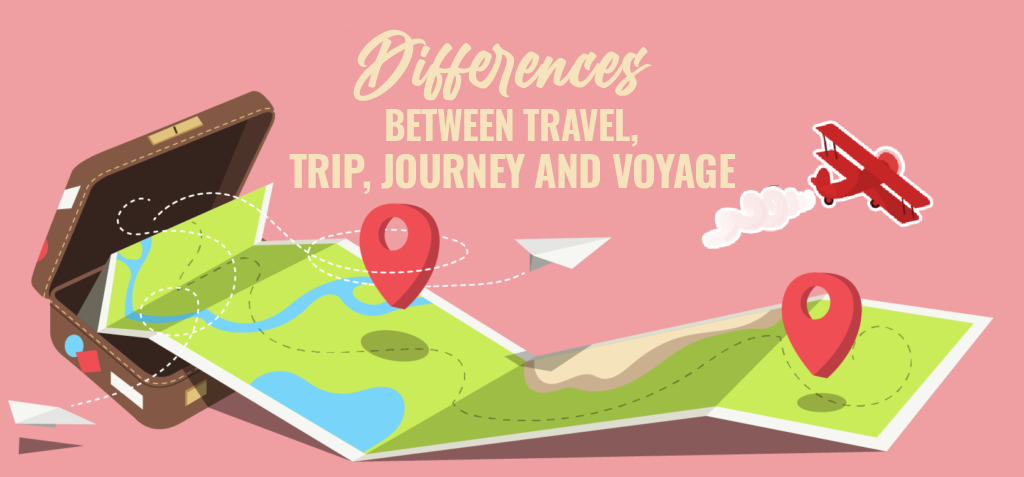
In this article, we are going to explain the differences between trip, travel, journey, and voyage and we will also advise you on how to correctly express both travel and trip in English .
ÍNDICE DE CONTENIDOS
One of the mistakes that Spaniards make most frequently when it is expressed in English is the incorrect use of travel, pronouncing it when in fact it must use trip or journey and when there is also the alternative of using “voyage” in certain cases.
Above it is clear that travel or its variants are not used for travel, but only for the verb to travel . Let’s go next step by step:
Travel means action, it is the act of traveling, moving from one place to another. You should never say ‘a travel’ . In the cases that we use travel as a verb. Usually, we refer to how we go to school, to work, abroad … and generally referring to the environment and the way the trip is made. For example: “I travel to school by foot” or “I travel to work by train”. (Viajo a la escuela a pie o Viajo al trabajo en tren) Also when we use it as a noun, we refer to vacation trips. For example: «Do you remember when we traveled along the Costa del Sol? (¿Recuerdas de cuando viajamos por la Costa del Sol?)
- On weekends I travel in search of the sea.
Los fines de semana viajo en buscar del mar.
- Every time I can I travel by train.
Cada vez que puedo viajo en tren.
- On weekends I travel through Andalusia, I love its towns.
Los fines de semana viajo por Andalucía, me encantan sus pueblos.
- What I like the most is traveling along the coast.
Lo que más me gusta es viajar por la costa.
- I don’t like traveling with you because you run a lot in the car.
No me gusta viajar contigo porque corres mucho con el coche.
- When I go on a trip I usually travel as a traveler.
Cuando salgo de viaje suelo viajar en un viajero.
“Trip” is often used when someone goes somewhere , either for a short holiday or for a business trip where you must spend the night out. It frequently refers to a trip with a basic itinerary: you know the round trip date , and why you have to make the trip (such as a short trip abroad). It is often alluded to phrases such as «a business trip» (viaje de negocios), «a weekend trip» (escapada de fin de semana), «a day trip» (viaje de un día), «a school trip» (excursión escolar).
However, it is not ruled out to use it to refer to a more or less long journey , such as It is a long trip from Cadiz to Madrid (Se trata de un viaje largo desde Cadiz a Madrid) ¿Qué tal el viaje a Andorra? (Toda la experiencia: viaje y estancia).
Although trip and journey have the same definition, the journey is generally used to refer to a specific trip (it can even be an excursion or a short trip) in which a stay at the destination is assumed. It is possible and in fact, it is a journey defined as a long trip .
However, by focusing on the differences between trip, travel, journey, and voyage, the one that raises the most doubt is that between Trip and Journey, for this reason, and with the purpose of avoiding it, we have prepared this article to try to dispel doubts. The typical sentence to clarify the differences is: «There could be a few trips in a journey and certainly a lot of travel» ( Puede haber algunos «trips» en un «journey» y, sin duda, mucho «travel» ).
- I don’t want to go to Paris. I don’t like journeys that last so long!
No quiero ir a París. ¡No me gustan los viajes que duran tanto !
- We have been thinking for months about the journeys we have to do by plane.
Llevamos meses pensando en los viajes que tenemos que hacer en avión.
- We have spent two weekends at base camp preparing for the journey across the desert.
Hemos pasado dos semanas en el campamento base preparando el viaje por el desierto.
Voyage is used to cite very long voyages , usually by sea and by air.
- I was very restless during the voyage to Chile.
Estaba muy intranquilo durante el viaje a Chile.
We hope that with this article we have managed to clarify the doubts that travel, trip, journey, and voyage raise among Spanish students. Actually, it is somewhat complicated, but practice through exercise will help, and in a short time to know what is the word that requires the phrase that we are building.
Elblogdeidiomas.es
Bienvenidos a todos los amantes de las lenguas, las diferentes culturas que nos rodean, rincones secretos del mundo, curiosidades y aprendizaje. Todo reunido en este bonito espacio en el que disfrutamos comunicando y dando buenas vibras a todos nuestros queridos viajer@s.
Leave a Reply Cancel reply
Your email address will not be published. Required fields are marked *
Save my name, email, and website in this browser for the next time I comment.
- Next story What is the Defective verb?
- Previous story The rarest languages in the world
- Español ( Spanish )
Browse the web
- Popular Posts
- Recent Comments
- Recent Posts

Tips to life/travel abroad / Top traveller TIPS / Trips and more
A Guide for Entrepreneurs and Foreign Families in Bilbao (Euskadi / Basque Country)
19 Nov, 2023
A1 / A2 / Grammar / Learn language / Learn spanish / Vocabulary
✨ A trio of action… Verbal endings –AR, -ER, -IR
24 Jun, 2022
Curiosities / Learn language / Tips
8 benefits you can get from learning different languages
23 Jun, 2022
B1 / Grammar / Learn Dutch / Vocabulary
Prepositions in German grammar
22 Jun, 2022
A1 / A2 / Grammar / Learn English / Learn language
Auxiliary verbs in English
21 Jun, 2022
B1 / B2 / Learn English / Uncategorized
Difference between hope and expect
2 Mar, 2021

A1 / A2 / Learn English
Articles in English. How to use A, An and The?
6 Apr, 2021
B1 / German exams / Goethe (German exam)
Guide to preparing the German Goethe-Zertifikat B1 exam (teenagers)
12 Apr, 2021
Learn Chinese / Learn Dutch / Learn English / Learn German / Learn Russian
The most difficult languages for a Spanish speaker
21 Jan, 2022
A1 / A2 / B1 / B2 / French
The noun in French
16 Feb, 2021
- B1 B2 books and reading C2 curiosities German exams grammar learn catalonian learn Chinese Learn Dutch Learn english learn french learn German learn italian learn language learn languages learn russian learn spanish pronunciation tips vocabulary
👉🏽 You may like


Travel vs. Trip vs. Journey

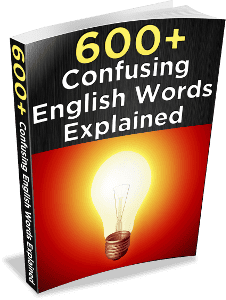
The act of going to another place (often for a short period of time) and returning.
- We took a five-day trip to the Amazon.
- You’re back from vacation! How was your trip ?
- I went on business trips to Switzerland and Germany last month.
Use the verbs “take” and “go on” with trip .
- A round-trip ticket is a ticket for going and coming back.
- A one-way ticket is only for going.
Travel (v.)
Going to another place (in general).
- I really like to travel.
- He travels frequently for work.
- My sister is currently traveling through South America.
Travel (n.) can be used to describe the act of traveling in general:
- Travel in that region of the country is dangerous.
- World travel gives you a new perspective.
Incorrect uses of travel :
- I bought this shirt on my travel to Thailand. I bought this shirt on my trip to Thailand.
- I’m planning a travel to the U.S. next year. I’m planning to travel to the U.S. next year. I’m planning a trip to the U.S. next year.
Journey (n.)
One piece of travel (going from one place to another) – usually a long distance.
- The journey takes 3 hours by plane or 28 hours by bus.
- He made the 200-mile journey by bike.
- “A journey of a thousand miles must begin with a single step” – Lao-tze, Tao Te Ching
We can also use journey in a more “metaphorical” way to talk about progress in life:
- He has overcome a lot of problems on his spiritual journey.
- My uncle is an alcoholic, but he’s beginning the journey of recovery.
Quiz: Travel, Trip, or Journey
- Then and Than
- Affect and Effect
Clear up your doubts about confusing words… and use English more confidently!

You might also like...
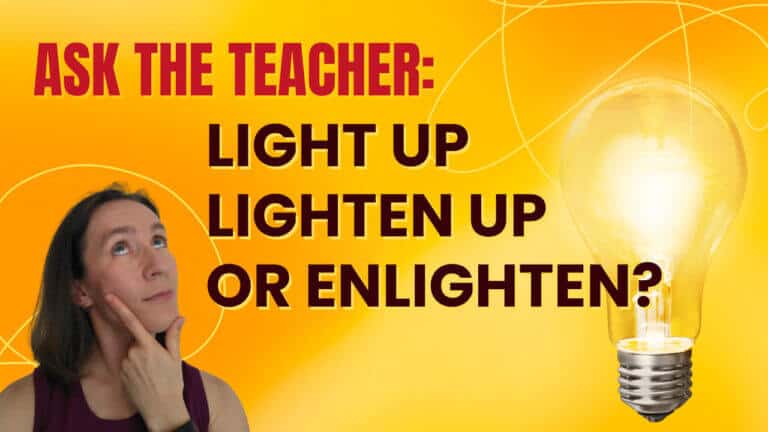
Light up, Lighten up, or Enlighten?
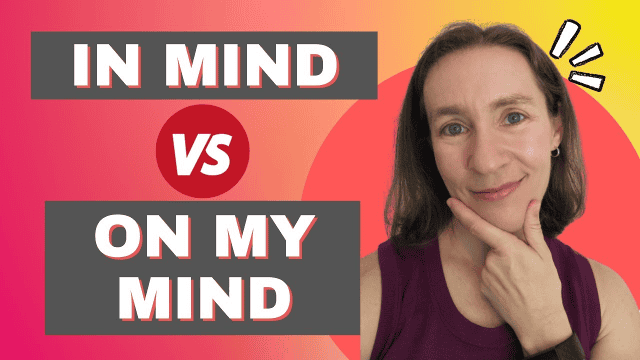
In mind vs. On my mind
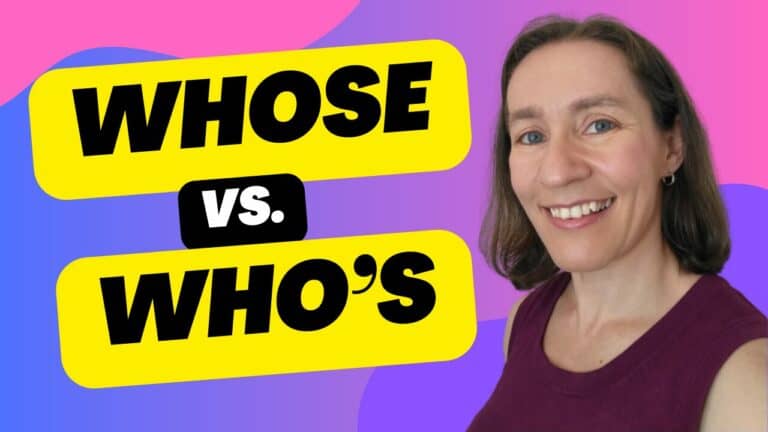
Whose vs. who’s: Difference & Examples

Hi, I’m Shayna. I create courses helping English as a Second Language learners become more fluent in just a few minutes a day – so they can speak English naturally and confidently in work and daily life.

What is the difference between Travel and Trip?
These two words frequently confuse learners of English.
A quick explanation that is valid for most situations is the following:
Travel – a verb (the action) Trip – a noun
Susan’s husband isn’t in town at the moment; he is on a business trip . He travels to many different countries. Susan met her husband on a trip to the Bahamas.
Travel – to go from one place to another Trip – a journey that is often for a short period of time.
NOTE: There are some exceptions to the general rule above.
Travel can also be a noun when it refers to the act of traveling.
- Travel is difficult in that part of the country since there are no paved roads.
- Travel broadens your mind.
Sometimes Travel appears in plural form and in that case is normally preceded by a possessive adjective (my travels, his travels etc.)
- She has had many adventures in her travels .
- I have never seen any as strange as that in all of my travels .
Trip can also be a verb though it has a completely different meaning. To Trip – to accidentally stumble and almost fall while walking or running, usually after catching your foot on something.
- He didn’t see the cat and he tripped up.
Trip vs. Journey
A trip usually refers to traveling to a place and returning back to where you started. A journey usually implies traveling from one place to another (not necessarily returning to where you started). It sometimes refers to the length of time taken to go from one place to another.
- They went on a journey through South America that lasted 6 months.
- It is a three-day journey by train.
Some more uses of the word Trip
A day trip usually refers to a tourist activity that occupies your entire day. A business trip is when you travel for business reasons. A round trip means to travel somewhere and return to place of original, there and back (= a return trip)
Summary Chart
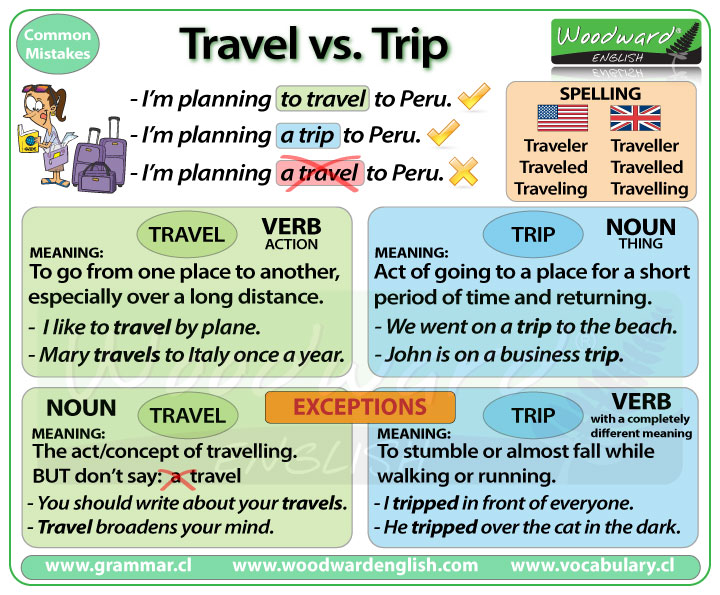
What is the best trip you have ever had?
- 980k Followers
- 217k Followers
- 126k Followers
FREE English Courses

Pin It on Pinterest
- Organizations
- Planning & Activities
- Product & Services
- Structure & Systems
- Career & Education
- Entertainment
- Fashion & Beauty
- Political Institutions
- SmartPhones
- Protocols & Formats
- Communication
- Web Applications
- Household Equipments
- Career and Certifications
- Diet & Fitness
- Mathematics & Statistics
- Processed Foods
- Vegetables & Fruits
Difference Between Voyage and Journey
• Categorized under Words | Difference Between Voyage and Journey
Voyage vs Journey
“Voyage” and “journey” are two words related to the word “travel.” “Travel” means “going from one particular place to another place.” “Journey” refers to a lone piece of travel. “Voyage” refers to a long journey, especially by ship.
Journey “Journey” refers to a single or lone piece of travel. It means traveling from one place to another place. For example, The journey from England to France can be done by train. It can be a short journey which is referred to as a trip, or a long journey. “Journey” can be used as a verb too in place of “travel,” but it sounds very poetic and formal. For example, They journeyed across the desert.
There are many words which are used to describe different types of journeys, for example:
Odyssey-Which refers to an eventful, long, wandering journey. Expedition-Refers to a journey which is organized for some particular purpose. Commute-Refers to a daily or regular journey from one’s place of work to home. Excursion-Refers to a journey which is particularly for pleasure. Schlep-Refers to a difficult and tedious journey.
These are just a few words which are used in place of “journey” to describe a very particular type of journey. “Journey” is used metaphorically also which does not actually describe the journey of a person from one place to another but the events happening in the life of a person, for example, The journey of one’s life, or life itself described as a long journey.
Voyage “Voyage” refers to a long journey mainly to a distant place or foreign place especially by the sea. The word “voyage” is not often used in modern times but historically. Voyages were very significant. For example, Christopher Columbus discovered American mainland in his third voyage. People traveled by sea to all foreign lands for trade, pleasure, adventure, etc. Wars were won and lost on the sea. Nations were built and destroyed by the power of the fleet possessed by a nation.
There are many words which are used in place of “voyage,” for example:
Cruise-Which refers to an ocean trip taken especially for pleasure. Crossing-It refers to a voyage across the Atlantic ocean not specifically said but understood.
There are many other words similar to these words which specifically express a journey by sea.
1.“Journey” refers to a single or lone piece of travel; “voyage” refers to a long journey mainly to a distant place or foreign place especially by the sea. 2.“Journey” is a word which is very often used in the modern world; “voyage” is not often used in the modern world but was very significant historically.
- Recent Posts
- Difference Between Data Mining and Data Warehousing - October 21, 2012
- Difference Between 7-Keto DHEA and DHEA - October 20, 2012
- Difference Between Tamil and Malayalam - October 18, 2012
Sharing is caring!
Search DifferenceBetween.net :
- Difference Between Travelers and Tourists
- Difference Between Aquatic and Marine
- Difference Between Faraway and Far Away
- Differences Between the Words ‘Agenda’ & ‘Itinerary’
- Difference Between Ocean Liner and Cruise Ship
Cite APA 7 Kaushik, N. (2012, February 6). Difference Between Voyage and Journey. Difference Between Similar Terms and Objects. http://www.differencebetween.net/language/words-language/difference-between-voyage-and-journey/. MLA 8 Kaushik, Nimisha. "Difference Between Voyage and Journey." Difference Between Similar Terms and Objects, 6 February, 2012, http://www.differencebetween.net/language/words-language/difference-between-voyage-and-journey/.
Thanks for the giggle. Reading through the definitions of journey and come upon “schlep”. Hilarious that you should include this Yiddish idiom.
Yes! Finally something about travel.
Leave a Response
Name ( required )
Email ( required )
Please note: comment moderation is enabled and may delay your comment. There is no need to resubmit your comment.
Notify me of followup comments via e-mail
Written by : Nimisha Kaushik. and updated on 2012, February 6 Articles on DifferenceBetween.net are general information, and are not intended to substitute for professional advice. The information is "AS IS", "WITH ALL FAULTS". User assumes all risk of use, damage, or injury. You agree that we have no liability for any damages.
Advertisments
More in 'words'.
- Difference Between Center and Centre
- Difference Between Lodge and Resort
- Difference Between Authoritarian and Fascism
- Difference Between Advocate and Barrister
- Difference Between Advocacy and Lobbying
Top Difference Betweens
Get new comparisons in your inbox:, most emailed comparisons, editor's picks.
- Difference Between MAC and IP Address
- Difference Between Platinum and White Gold
- Difference Between Civil and Criminal Law
- Difference Between GRE and GMAT
- Difference Between Immigrants and Refugees
- Difference Between DNS and DHCP
- Difference Between Computer Engineering and Computer Science
- Difference Between Men and Women
- Difference Between Book value and Market value
- Difference Between Red and White wine
- Difference Between Depreciation and Amortization
- Difference Between Bank and Credit Union
- Difference Between White Eggs and Brown Eggs

Quality Point(s): 0
- English (US)
What is the difference between travel, trip, journey and voyage ?Feel free to just provide example sentences.
- Report copyright infringement

Quality Point(s): 1082
Answer: 207
They all mean roughly the same thing (except travel), they’re synonyms of each other. Travel is an action, you’re going to travel on a trip.. or travel on a journey.. or travel on a voyage. Trip, Journey, and Voyage are synonyms. They mean roughly the same, and can be used interchangeably. Travel cannot, because it is an action and the others are moreso destinations. I hope that makes sense.
Was this answer helpful?
- Why did you respond with "Hmm..."?
- Your feedback will not be shown to other users.

Quality Point(s): 1937
Answer: 430
journey is the act of going. if the plane ride was more interesting than the vacation, your journey was the best part. trip refers to all of it. "How was your trip to London?" "We were locked in the hotel for much of it. The plane ride was the best part." a voyage is a very long trip. VERY long. usually at sea or in space, and it would last months or years. The pilgrims went on a voyage from England to the Americas. A voyage around the world would last four or five years. If you read about someone going on a voyage, they probably took a ship. travel is the verb. you travel on your trip, and people wish you a pleasant journey. your family hopes it is not a voyage.

Quality Point(s): 123
some imply greater time, so when you use them think about how travel and trip can be, and imply, the same distances. journey implies a longer distance traveled than a basic trip. You would not generally say "I went on a journey to the store" although this is correct it implies something greater. You would say "I took a trip to the store" or "I travelled to the store". Voyage implies very long distances over water, or space even. "The ship took a voyage to mars" Trip and Travel can also mean long distances though, "The ship travelled to mars". I hope this helps

- English (US) Near fluent
Quality Point(s): 1260
Answer: 503
Travel: is going from one place to another which means travelling en general and it can be used as a verb or a noun - I like sports and travels - I travel a lot Journey: a piece of travelling and it refers to a long distance or a short one - She has a great journey Trip: a jounrey for a reason such as business/ work .. - He goes on a business trip Voyage: a long journey by sea or space.. - The voyage to canada took over more then a month
- What is the difference between travel in and travel to ?
- What is the difference between different from and different with ?
- What is the difference between each time and every time ?
- What is the difference between relate to and relate with ?
- What is the difference between speak and speaks ?
- What is the difference between travel , trip and journey ?
- What is the difference between travel, trip and journey ?
- What is the difference between travel and trip ?
- What is the difference between travel and tour and trip and journey ?
- What is the difference between travel and journery ?
- This is from my travel guide book. At the elementary school office, the mother is asking the sta...
- What is the difference between Write your name in pen and Write your name with a pen ?
- What is the difference between They demand a big ransom and They demand a big ransom amount ?
- What is the difference between to compliment someone and to praise someone ?
- What is the difference between ...in strict compliance herewith, with applicable standards. and ....
- What is the difference between help and help out ?
- What is the difference between Would you〜? and Could you 〜? ?
- What is the difference between low cost flights and low price flights ?
- What is the difference between It ha been quite a while since I spoke with anyone, so perhaps I w...
- What is the difference between Since local people reported that they had seen bears in the nearby...
- What is the difference between Path and Trail ?
- What is the difference between squid and squiddles ?
- How do you say this in Japanese? Didn't he? / Didn't she? / Didn't they? - He played soccer didn...
- Do you know a website (Japanese, English doesn't matter) where I can download subtitles for Japan...
The Language Level symbol shows a user's proficiency in the languages they're interested in. Setting your Language Level helps other users provide you with answers that aren't too complex or too simple.
Has difficulty understanding even short answers in this language.
Can ask simple questions and can understand simple answers.
Can ask all types of general questions and can understand longer answers.
Can understand long, complex answers.
Show your appreciation in a way that likes and stamps can't.
By sending a gift to someone, they will be more likely to answer your questions again!

If you post a question after sending a gift to someone, your question will be displayed in a special section on that person’s feed.

Ask native speakers questions for free

Solve your problems more easily with the app!
- Find the answer you're looking for from 45 million answers logged!
- Enjoy the auto-translate feature when searching for answers!
- It’s FREE!!
- What is the difference ...

Voyage vs. Journey — What's the Difference?
Difference Between Voyage and Journey
Table of contents, key differences, comparison chart, associated imagery, usage in literature, compare with definitions, common curiosities, is a voyage always longer than a journey, can you describe a trip by plane as a voyage, is a "life journey" a common way to describe one's life experiences, can a journey be a short trip, what primarily differentiates a voyage from a journey, can a journey be considered a voyage if it's by sea, is every voyage a journey, is the term "voyage" exclusive to travel on water, can "journey" refer to personal or emotional transitions, is "voyage" used figuratively, would a road trip be termed a voyage, how is "journey" used in a spiritual context, can "voyage" and "journey" be used interchangeably, how are these terms adapted in modern contexts, are voyages always planned or can they be spontaneous, share your discovery.
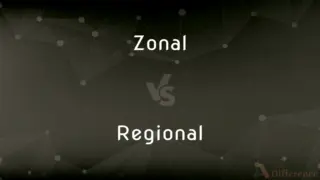
Author Spotlight
Popular Comparisons

Trending Comparisons

New Comparisons

Trending Terms

Voyage vs Journey: Difference and Comparison
Sharing is caring!
The word travel is derived from the old French word called ‘travail.’ The word essentially meant ‘to work.’ The word then branched off to have a wide range of meanings like Voyage and Journey.
Although both a voyage and a journey mean to travel, their differences exist.
Key Takeaways A voyage specifically refers to a long trip, by sea or air, while a journey encompasses any travel from one place to another. Voyages involve the exploration or transportation of goods, while journeys can be physical, emotional, or symbolic. The term “voyage” implies a sense of adventure, whereas “journey” may refer to any trip, regardless of length or purpose.
Voyage vs Journey
The difference between Voyage and Journey is that they refer to two different modes of travel.
A voyage refers to a long-distance act of traveling, by sea or any other large water body, while a journey refers to the act of long-distance traveling by land, by different means of transport.
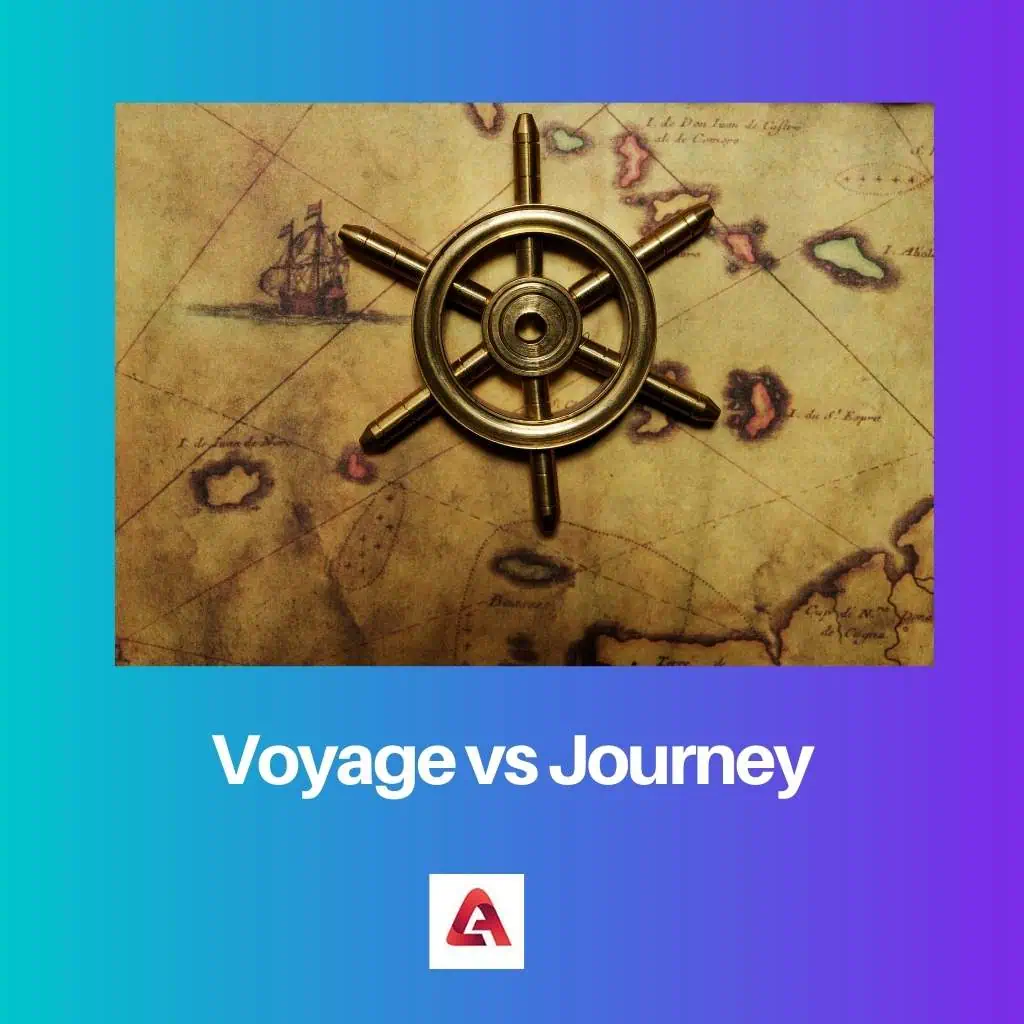
A voyage is an act of traveling. Usually, a voyage refers to a long-distance traveling trip mainly made on the waters instead of land.
Usually, the mode of transport hence is ships, boats, and other water vessels. The voyage can also be used to describe the passage of time. In general, it refers to sea travel.
The Journey is an English word that has diverse meanings. In general, it means to travel a certain distance.
However, a journey can be used to describe both long or short-distance traveling. It may or may not include sea travel and include a wide variety of modes of transport.
Comparison Table
What is voyage.
The term voyage is a French word that means Journey. It is used to refer to a long-distance trip. For example, a story about a ship on a long journey would be referred to as a “voyage story.
Other meanings for the word Voyage include the act or process of traveling or shipping.
This term is used to describe traveling on water. A voyage consists of many different parts, such as the Voyage’s departure, the Voyage itself, and the arrival.
In the past, people used the word Voyage for longer trips, such as long sea journeys.
Voyage is a lesser-used term in the modern-day world. Other terms such as cruising, crusade, passage, sailing, and the like are used.
The main reason, however, stands as during medieval times traveling long distances could not be achieved by land as no such forms of transportation were available.
Traveling by sea by far was the cheapest mode of travel (even today); thus, this term was commonly used back then.
Today with the advent of many efficient modes of transportation like trains and planes, sea travel has reduced, and so is the use of the word. However, the term is still used but more in a poetic tone.
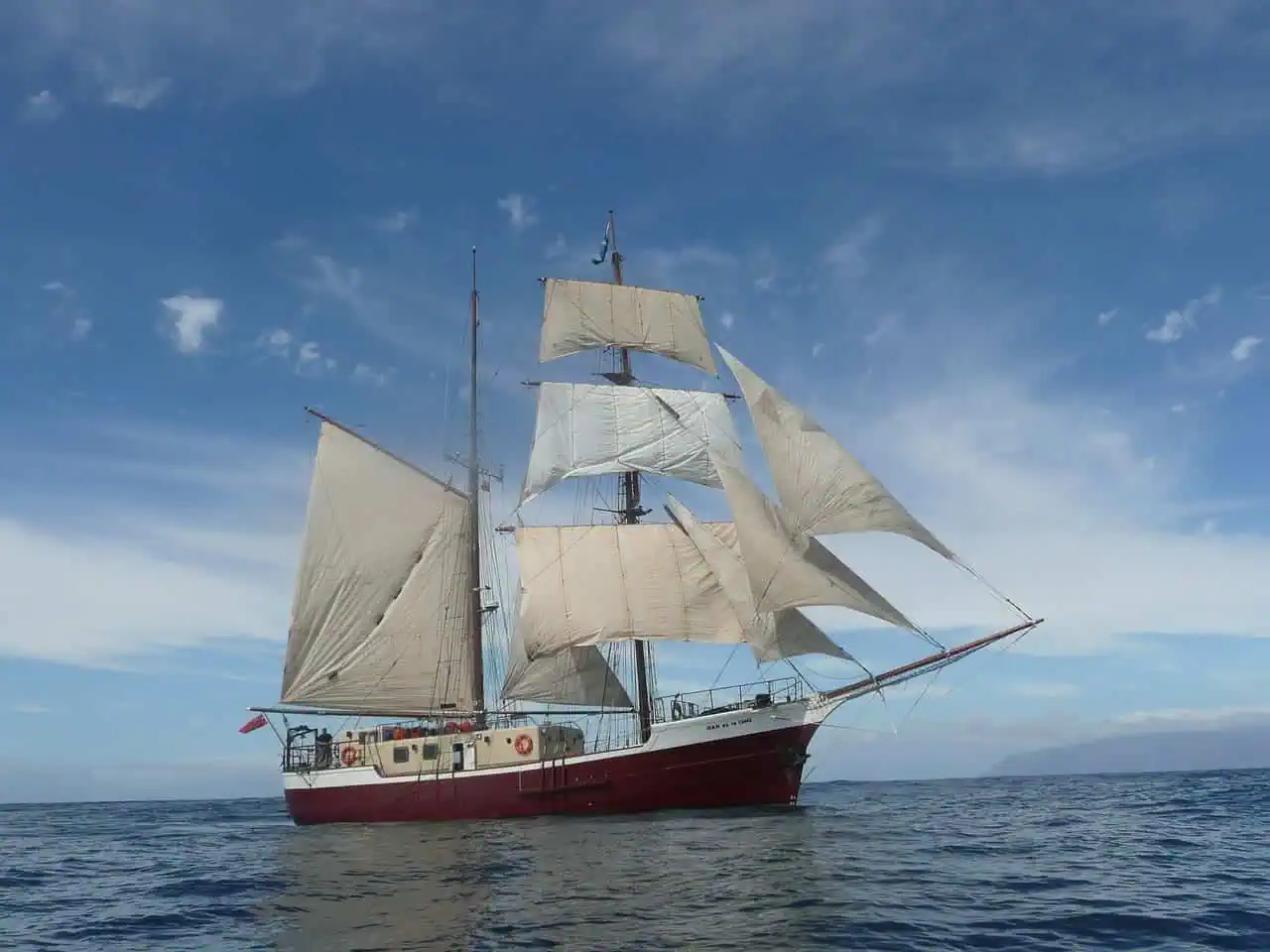
What is Journey?
The Journey is a phrase that means a long trip you take to get somewhere. The reason it’s called that is that it takes a long time.
There are many different types of journeys, and they are widely varied. In general, a journey is a long trip you take to get somewhere or do something.
A journey can be made for various reasons, but it is for business or pleasure. Sometimes the journey is the destination, but not always.
A journey can be a journey to work, a journey to visit a friend for the weekend, or a journey to a foreign country for a trip of a lifetime.
Any trip of significant distance is a journey, but the word Journey can also be used to describe the entirety of a person’s life. For example, a person’s life is a journey.
We all start at a young age and live our life. We travel to different places, see different things, and meet many different people.
Short-distance journeys are also termed trips. A journey, for pleasure, is termed as an excursion.
The journey made for a particular purpose is called an expedition, and so on. The word itself has many synonyms and can be used variedly.
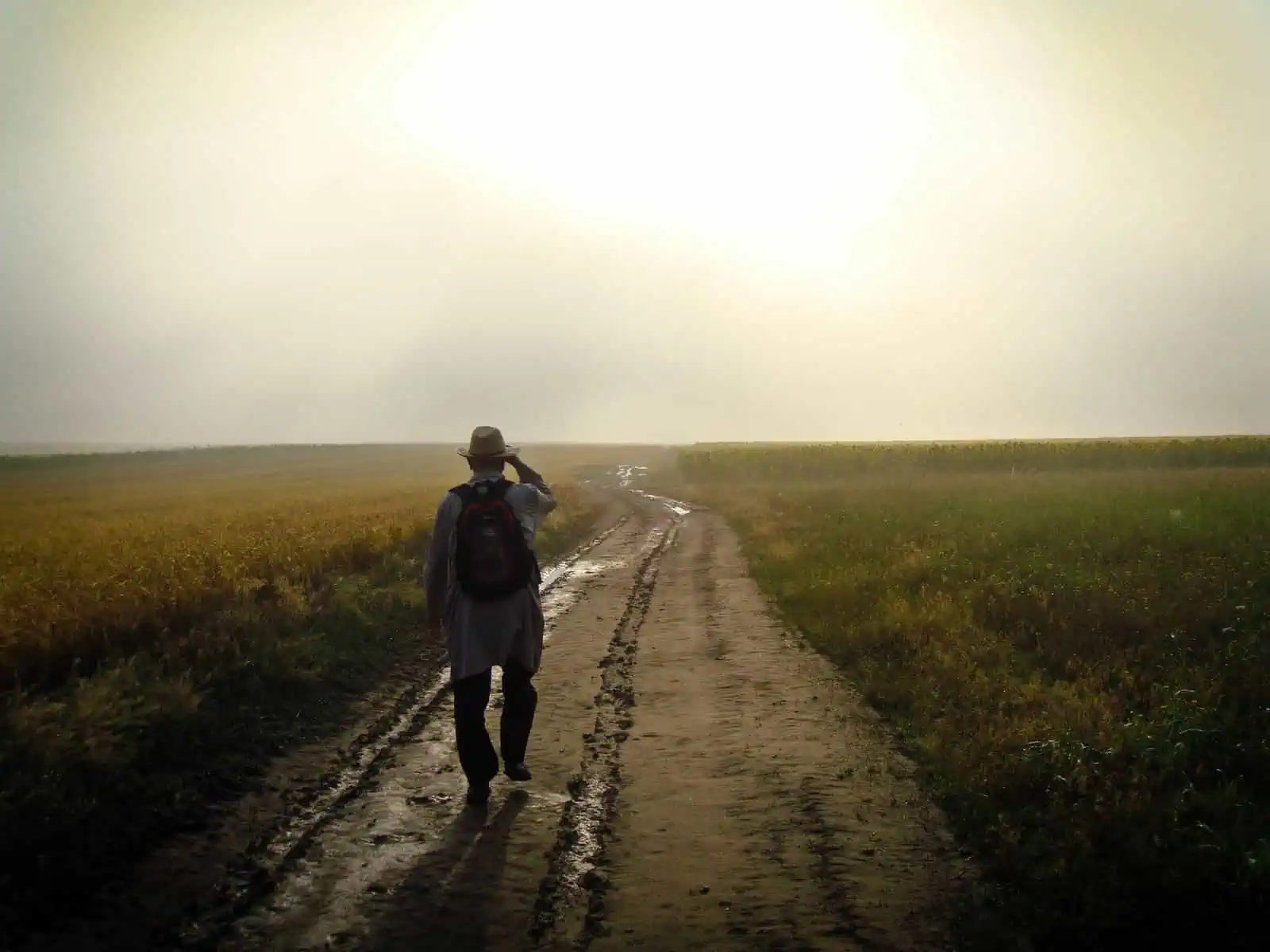
Main Differences Between Voyage and Journey
- The main difference between the words voyages and Journey is that the former means a trip by water, and the latter means a trip by land.
- Voyage does not refer to any other sense than traveling, but the Journey is also a metaphorical word for a long trip in the sense of life and spiritual growth.
- Voyages are much longer than journeys as traveling through water takes more time and also covers more distance.
- The word ‘voyage’ implies that you are traveling to a singular destination, but ‘voyage’ means traveling between various places.
- A voyage is long, but a journey can be long or short, depending on the purpose of travel.
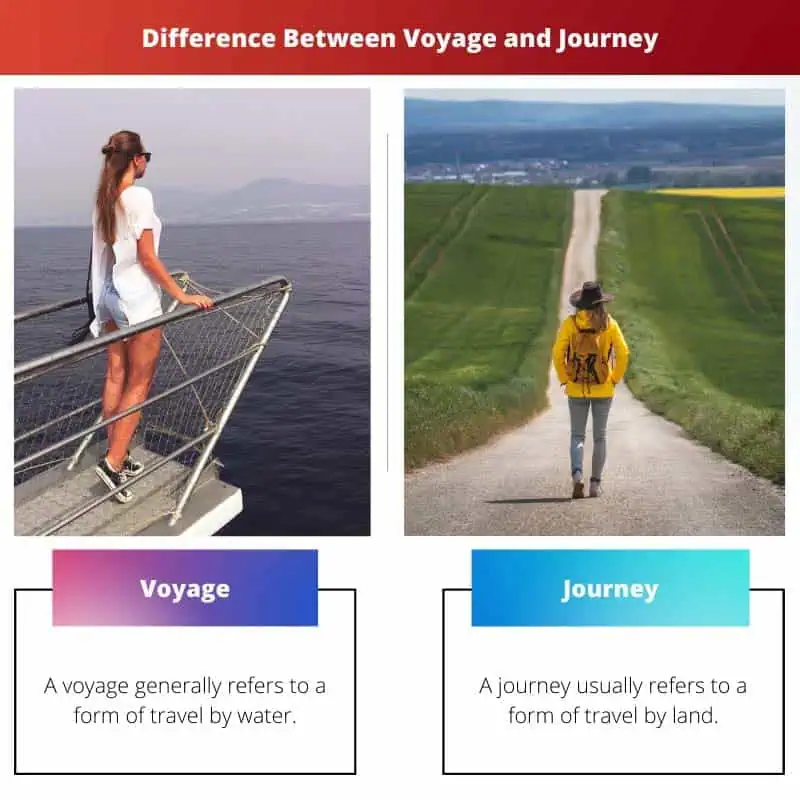
- https://www.taylorfrancis.com/chapters/edit/10.4324/9781315246970-2/defining-travel-travel-book-travel-writing-terminology-jan-borm
- https://books.google.com/books?hl=en&lr=&id=3aD_284HkrIC&oi=fnd&pg=PR7&dq=what+is+a+voyage&ots=4u1yAJXyAK&sig=Nn_d8xQNSyjOwxe33jkH9lDux_E
I’ve put so much effort writing this blog post to provide value to you. It’ll be very helpful for me, if you consider sharing it on social media or with your friends/family. SHARING IS ♥️
Want to save this article for later? Click the heart in the bottom right corner to save to your own articles box!
By Emma Smith
Emma Smith holds an MA degree in English from Irvine Valley College. She has been a Journalist since 2002, writing articles on the English language, Sports, and Law. Read more about me on her bio page .
Related Post
Article vs essay: difference and comparison, except vs besides: difference and comparison, because vs due to: difference and comparison, how to fix the instagram scrolling problem: turning off auto scroll easily, how to add shortcut to google chrome homepage: a quick guide, how to see where you’ve been: google maps timeline guide, 10 useful 3d printing ideas: enhance your home with diy projects.

VOCABULARY: Travel, Journey or Trip? What's the difference?
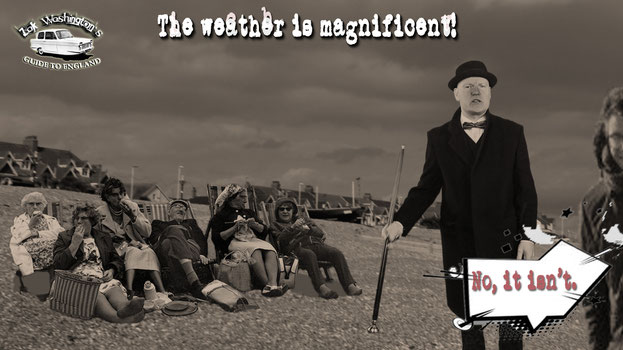
To travel is, of course, a verb but not normally a noun unless it is in a literary context e.g. Gulliver’s Travels (a book by Jonathan Swift), or a long, extensive tour.
In everyday English, we would refer to travelling by saying a journey , or a trip , the difference being that a trip talks of the whole process of going, doing what you do, and then returning.
A journey is used more to refer to the journey itself, although often there is little difference. Compare the following: ‘The journey was rotten. The fat man who sat next to me snored all the time.’ ‘The trip was great, we managed to do everything that we had intended.’
To journey is an archaic verb not used now. To trip exists but it has a completely different meaning; ‘to fall over an object’; ‘He tripped over the step and spilt all the drinks.’
To voyage only refers to a long journey made at sea.

Write a comment
- Scroll to top

IMAGES
VIDEO
COMMENTS
Meaning and use of the words 'trip', 'travel', 'journey', 'tour', and 'voyage'. The explanation below should help clarify the meaning and use of vocabulary related to travel. The word 'travel' is used to talk about going from one place to another. Verb : Paul travels a lot in his job. Noun : Travel nowadays is faster than before.
Trip (noun) A trip describes the whole process of going somewhere and coming back. (It is more than one journey.) Once again, let's go from London to Leeds then back again. As I said above, that is two journeys, but it is one trip. Some examples: a day trip, a round trip, a round-the-world trip, a boat trip and a business trip.
Vocabulary: Differences between travel, journey, trip, voyage and tour . Published 29/07/2015 In Blog. Download image The Summer holidays are around the corner so it is definitely a good time to post an article on my blog explaining the difference between all these words.
As a noun, "tour" means a visit to a place or area, especially for the purpose of sightseeing and learning about it. It can also be a trip for pleasure, especially as a vacation, visiting several different places in an area. As a verb, "tour" means to travel somewhere, e.g., to spend a month touring (around/in) Kenya.
As nouns the difference between trip and voyage is that trip is a journey; an excursion or jaunt while voyage is a long journey, especially by ship. As verbs the difference between trip and voyage is that trip is to fall over or stumble over an object as a result of striking it with one's foot while voyage is to go on a long journey. As an ...
Travel, Journey, Trip and Voyage - Differences in meaning. Travel means traveling in general. Travel is my passion. The plural form travels is used to refer to long journeys especially to other countries. Is he back from his travels? Journey. A journey is a piece of traveling. Did you have a good journey? Trip. A trip is a return journey.
Discover the differences between "Trip," "Travel," "Journey," and "Voyage" in English. Clear explanations and ample examples in an easy-to-grasp lesson, perfect for beginners to learn effectively. ... The space agency is planning a voyage to the moon. (Space trip) They enjoyed a voyage on a luxury cruise ship. (Pleasurable sea trip) The voyage ...
Definition and Differences between Travel, Trip, and Journey. Travel is a verb that means going to a place, especially far away, while trip refers to the process of traveling from one place to another, usually for a short time. ... It's like embarking on a voyage of discovery, where you're eager to see what lies ahead and open to new ...
travel trip voyage journey: Travel (v) is used in general terms as a verb - it usually means to change location. The word travel is very rarely used as a noun. For example: I have to travel a lot for work. Trip (n) is often substituted for the word holiday when the travelling distance was short. For example ...
We'll go cycling for an excursion and then stay at a campsite. Remember to always use the prepositional phrase go on (not go to) with the travel words: go on a trip, go on a journey, go on a tour, go on a cruise, go on a holiday, etc. Travel Words: Trip, Journey, Cruise, Tour, Voyage…. Let me take your English to the next level.
Are you confused about when to use the words travel, journey trip and voyage? In this video you'll find out with examples of usage. For more English langua...
A trip. To trip una excursion. trip incorporates every aspect of the trip, eg the hotels, restaurants, the experience, everything that is done, etc. A journey un trayecto. journey refers only to the movement from one place to another. A voyage travesía, boat trip, or in space (Star Trek style).
One piece of travel (going from one place to another) - usually a long distance. The journey takes 3 hours by plane or 28 hours by bus. He made the 200-mile journey by bike. "A journey of a thousand miles must begin with a single step" - Lao-tze, Tao Te Ching. We can also use journey in a more "metaphorical" way to talk about ...
There are small differences between these words. For one, travel is more commonly used as a verb than a noun. You won't really hear someone say "I'm going on a travel", but you'll often hear people say "I'm going on a trip". As for trip and journey, trip usually refers to a small casual outing that can be anywhere from a few days to a few weeks.Journey, however, has a more epic and grandiose ...
Travel - to go from one place to another. Trip - a journey that is often for a short period of time. NOTE: There are some exceptions to the general rule above. Travel can also be a noun when it refers to the act of traveling. Travel is difficult in that part of the country since there are no paved roads.
Summary: 1."Journey" refers to a single or lone piece of travel; "voyage" refers to a long journey mainly to a distant place or foreign place especially by the sea. 2."Journey" is a word which is very often used in the modern world; "voyage" is not often used in the modern world but was very significant historically. Author.
Synonym for travel, trip, journey journey is the act of going. if the plane ride was more interesting than the vacation, your journey was the best part. trip refers to all of it. "How was your trip to London?" "We were locked in the hotel for much of it. The plane ride was the best part." a voyage is a very long trip. VERY long. usually at sea or in space, and it would last months or years ...
The journey there took three hours. (correct) (A) The trip took three hours (wrong) All dictionaries defined a trip as a short distance travel while journey it takes a lot time to achieve, i.e. to travel for a distant area by a vehicle. This already is understood and no question to ask more but I had this example:
Key Differences. A voyage usually indicates a prolonged trip, primarily by sea or space. In contrast, a journey is a more generic term that encompasses the act of traveling between two or more points, irrespective of the medium or duration. Historically, the word voyage was often linked with explorations across oceans, indicating adventures and ...
Voyage vs Journey. The difference between Voyage and Journey is that they refer to two different modes of travel. A voyage refers to a long-distance act of traveling, by sea or any other large water body, while a journey refers to the act of long-distance traveling by land, by different means of transport. A voyage is an act of traveling.
In everyday English, we would refer to travelling by saying a journey, or a trip, the difference being that a trip talks of the whole process of going, doing what you do, and then returning. A journey is used more to refer to the journey itself, although often there is little difference. Compare the following: 'The journey was rotten.